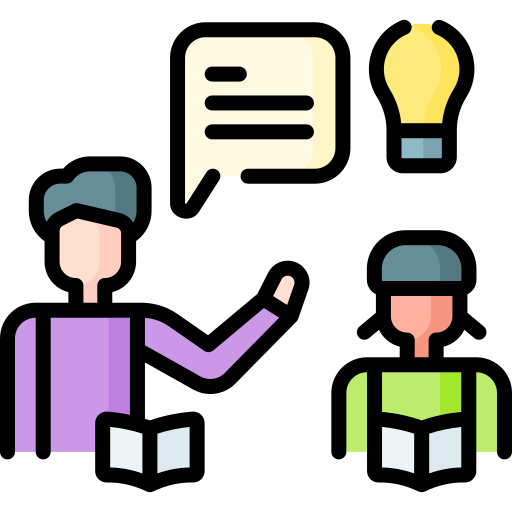
This logo isn't an ad or affiliate link. It's an organization that shares in our mission, and empowered the authors to share their insights in Byte form.
Rumie vets Bytes for compliance with our
Standards.
The organization is responsible for the completeness and reliability of the content.
Learn more
about how Rumie works with partners.
Looking to take your grades to the next level and boost your academic confidence?
Imagine walking into class feeling prepared and confident in your abilities.

Tutoring is like having your own personal teacher who can help with whatever you need! If you're ready to improve your grades and develop effective study habits, let's explore the different benefitsof tutoring together.
What is Tutoring?
Tutoring is an additional form of academic support where an instructor helps students improve their skills in a specific subject or area of study, typically outside of the classroom.

Who would be your tutor? The identity of the tutor can vary — it could be peers who excel in the subject, educators, or professional tutors working in the field.

Peers who excel in a subject can provide great support, while educators bring expertise and experience to the tutoring session. Professional tutors have specialized training, making them valuable resources for students that need extra help.
Whoever your tutor may be, their main role is to identify any gaps in your understanding and provide corrections to help you get back on track or get ahead.
Types of Tutoring
Tutoring comes in different forms:

One-to-one
One-to-one tutoring provides personalized attention and is tailored to your specific learning needs. The tutor can tailor the instructions to your specific learning style and pace.
Small-group
Small group tutoring allows for peer interactions and encourages collaboration, typically with a ratio of one tutor to 2-5 other students.
Group learning center tutoring
Group learning at a tutoring center offers resources and support materials, such as study materials and technology, to help you in your academic success.

In-person
In-person tutoring can be at your home, school, or library. This type of tutoring helps the tutor to closely observe your strengths and weaknesses, providing personalized assistance and feedback.

Online
With online tutoring, you can connect real time with your tutor through your computer or tablet. It's accessible regardless of location or transportation.
Quiz
Belle is taking an AP English class and needs help with complex concepts. What type of tutoring format would be most appropriate for her?
Since Bell needs assistance with complex concepts, a one-on-one tutoring format would be the most appropriate option. This approach allows for personalized instruction tailored to her specific needs, strengths, and weaknesses. The tutor can adjust the pace of the lessons based on her understanding of the material, without the pressure of keeping up with a group. While small groups or learning centers offer valuable peer interaction and collaboration, they lack the same level of individualized support that Bell would benefit from.
Academic Benefits of Tutoring
Personalized attention
Tutoring offers individualized instruction that goes beyond what is typically provided in schools. Tutors can focus on what you're struggling with and give you the extra help you need to succeed.

Motivation and accountability
Want to be motivated? Having a tutor can keep you on track with a personalized homework tracker and give you the push you need to crush your academic goals.

Increased opportunity for college acceptance
When you improve your academic performance you'll have a higher GPA, which can improve your opportunity of getting into college or receiving scholarship offers.
Tutors often specialize in test preparation strategies that can significantly boost your scores on standardized assessments like the SAT or ACT. Additionally, they can provide valuable assistance in crafting personalized college applications tailored to the specific schools or programs you wish to pursue.
Did you know?
Spaced practice is the secret to learning. Instead of cramming all at once, practicing little and often not only makes learning more enjoyable, but it also helps you remember what you've learned!
Personal Benefits of Tutoring
Anxiety and stress relief
Tutoring provides a supportive learning experience. You can ask questions and get feedback in a pressure-free environment. It's really tailored to you and your pace.

Better time management skills
With tutoring, you can stay organized and on top of your homework. Tutors can create a personalized study schedule and support you managing your academic workload.

Tutoring is beneficial is so many ways, whether you're struggling in class and need extra help, or you're doing really well and want to get ahead.
Take Action

Ready to unlock your potential with the benefits of tutoring? Boost your academic performance, gain new skills, or improve your understanding of a specific subject?
This Byte has been authored by
Kirsten H
Learning Designer Volunteer
Master

